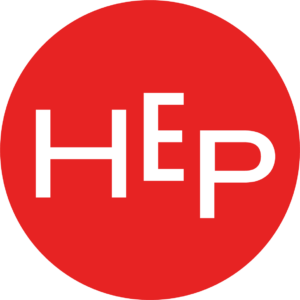Health and Harm Reduction Services at Encampments and Supportive Housing Sites

Grantee: Hepatitis Education Project
Timeframe: July 2024 – June 2026 | Amount: $383,895
- Year 1: July 2024 – June 2025. Amount: $183,895
- Year 2: July 2025 – June 2026. Amount: $200,000
Hepatitis Education Project (HEP) provides essential health and harm reduction services to marginalized communities living in encampments and transitional housing facilities, with a particular focus on South King County.
This project will enhance harm reduction, hepatitis, and Medications for Opioid Use Disorder (MOUD) services by bringing these resources directly to field-based settings at encampments and transitional housing sites throughout Seattle and South King County. This approach minimizes access barriers and reduces disparities by providing care directly within the communities.
Currently, HEP’s outreach team visits between five and eight encampments each week, offering critical services such as wound care, naloxone distribution, and harm reduction supplies. On-site pharmacists, supervised by a physician, provide all stages of HCV treatment, ensuring low-barrier access for clients.
HEP will implement the project through the following strategies:
- Access to Hepatitis C Services: Provide treatment, testing, and prevention education for hepatitis C in populations disproportionately affected by HCV, including people who inject drugs, those experiencing homelessness, and BIPOC communities.
- Overdose Prevention: Address the high rate of overdose deaths among people experiencing homelessness in King County by increasing accessibility to prevention and MOUD services. Overdose remains the leading cause of death in this population, underscoring the need for targeted interventions.
- Service Expansion in South King County: Improve health outcomes for residents of South King County, who face worse health disparities compared to other areas of King County, by implementing targeted interventions.
To address healthcare disparities and build on HEP’s strengths, funding will be used to:
- Expand Harm Reduction Services: Intensify harm reduction efforts at encampments and transitional housing sites, focusing on overdose prevention through naloxone distribution and training.
- Increase Hepatitis C Testing and Education: Offer on-site hepatitis C testing and education on viral hepatitis and overdose prevention to residents.
- Innovate Hepatitis Care Coordination: Develop new systems for comprehensive viral hepatitis care coordination and treatment at encampments, including updates to outreach supplies and the use of medical telehealth platforms.
- Enhance Linkage to Care: Expand community-based treatment models directly at encampments to increase the number of residents linked to hepatitis C care and treatment.
- Facilitate Access to MOUD Services: Partner with fixed-site and mobile MOUD providers to enhance access and transportation for residents needing these services.
Throughout the project, target populations will be actively involved in all phases, from initial development to implementation and feedback collection. Encampment residents will play a central role in shaping services to ensure they effectively meet community needs. Quarterly discussions with participants and residents will provide ongoing feedback for continuous service improvement.
Year 2 of the project includes two key expansion points:
- Capacity Building – Providing technical assistance and support to organizations throughout Seattle on harm reduction and infectious disease testing. The goal is to share effective toolkits and lessons learned from the field to strengthen service delivery. Expanding harm reduction strategies across King County will increase low-barrier access to hepatitis C and infectious disease testing and treatment.
- Partnership Expansion – Assisting organizations in developing workflows, offering hands-on training, and delivering educational modules on harm reduction, including naloxone distribution and infectious disease services. By equipping local organizations with these tools, the project aims to enhance the adoption of harm reduction models, improving access to life-saving services.
The project will focus on identifying 12 key partners and delivering 12 educational training modules on harm reduction, naloxone distribution, and infectious disease services.
ABOUT OUR GRANTEE
“Since 1993, the Hepatitis Education Project (HEP) has been fighting to make viral hepatitis less deadly. What started as a support group for people living with chronic viral hepatitis has grown into Washington state’s only 501c3 organization devoted to stopping this silent killer.
Guided by tenets of harm reduction and health equity, our work prioritizes the needs of people who use drugs, those experiencing homelessness, and marginalized communities disproportionately impacted by viral hepatitis.”